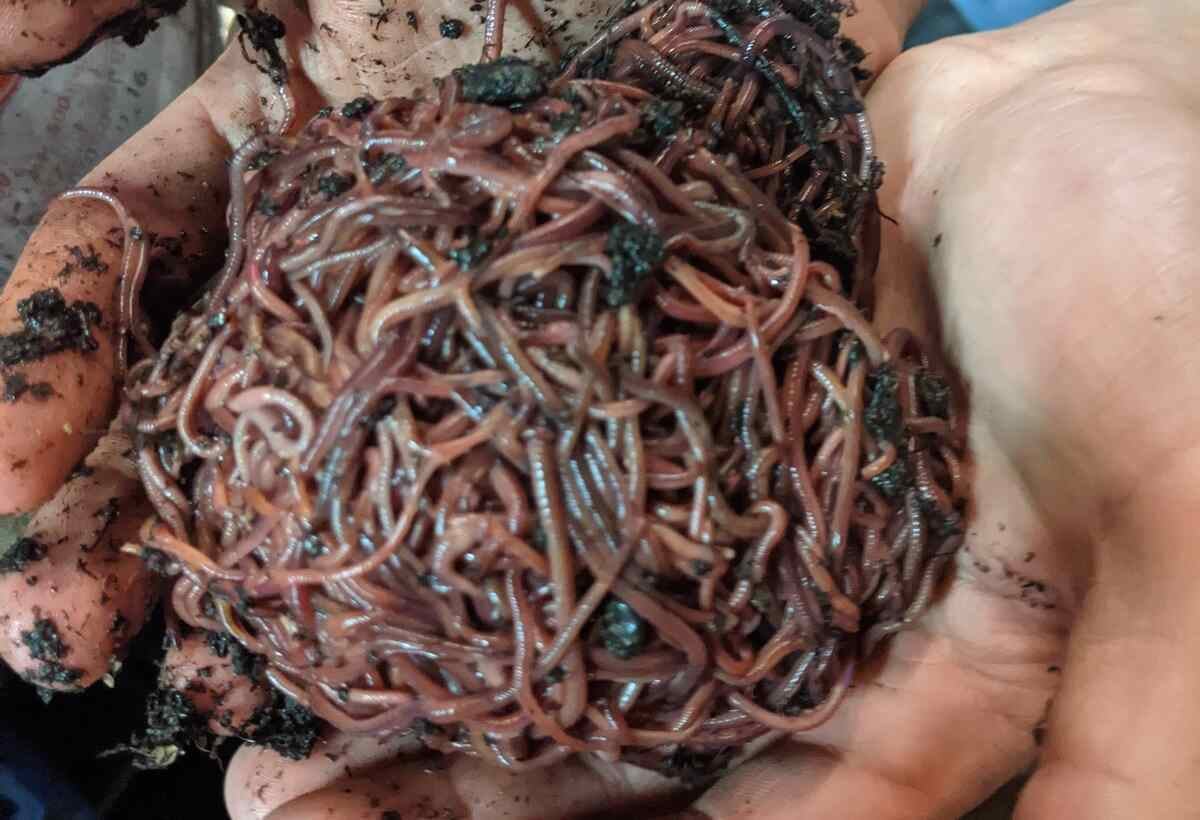Red Wiggler Worms - Perfect for Vermicomposting and Soil Enrichment
Red Wiggler Worms - Perfect for Vermicomposting and Soil Enrichment
Blog Article
Red Wiggler Worms Demystified: Unlocking the Keys of Vermiculture for Greener Living and Nutrient-Rich Dirt
In the world of sustainable techniques for enriching dirt top quality and advertising eco-conscious living, red wiggler worms play a critical yet often forgotten role. Red Wiggler Worms. Comprehending the details of caring for these worms, maximizing their atmosphere, and utilizing their spreadings can lead to a greener lifestyle and much healthier soil for plants to flourish.
The Duty of Red Wiggler Worms
Red Wiggler worms play an important role in composting systems by effectively breaking down raw material into nutrient-rich spreadings. These voracious eaters consume a variety of natural products, such as kitchen scraps, backyard waste, and paper products. As they feed, the worms' gastrointestinal procedures break down the organic matter into a fine, dark, and nutrient-dense material referred to as worm spreadings or vermicompost.
The spreadings generated by Red Wiggler worms are extremely beneficial for dirt wellness and plant growth. They are rich in necessary nutrients like phosphorus, potassium, and nitrogen, which are important for sustaining healthy plant advancement. Additionally, worm castings include beneficial microbes and enzymes that help enhance soil structure, rise water retention, and improve nutrient uptake by plants.
Advantages of Vermicomposting

In addition, vermicompost, the nutrient-rich final result of vermicomposting, functions as a superb natural fertilizer and soil conditioner. It improves soil structure, improves soil oygenation, and increases dirt moisture retention. These residential properties add to healthier plants with more powerful origin systems and much better resistance to conditions and parasites. Vermicompost also enhances the dirt with essential nutrients like nitrogen, potassium, and phosphorus, advertising plant growth and general soil fertility.
Additionally, vermicomposting assistances lasting gardening methods by providing a all-natural and chemical-free alternative to artificial plant foods. Red Wiggler Worms. This eco-friendly technique not just enhances the dirt yet likewise helps in reducing reliance on hazardous chemicals, promoting a greener and extra sustainable means of gardening
Establishing a Worm Bin
When establishing a worm bin for vermicomposting, proper setup is critical to make certain the success of the composting process. The initial step in establishing a worm bin is choosing an appropriate container. This can be a plastic bin or wooden box that offers enough space for the worms to move and has appropriate drainage openings to stop waterlogging. Next off, a bedding material such as shredded newspaper, cardboard, or coconut coir should be included to the bin. This bed linen check my reference provides a comfy environment for the worms and helps keep moisture degrees.
After adding the bed linens, introduce the red wiggler worms to the container. The worms should then be supplied with food scraps such as fruit and veggie peels, coffee premises, and eggshells.
Routinely check the wetness degrees and temperature level in the worm bin to ensure optimal problems for the worms. With proper setup and maintenance, the worm bin will efficiently transform natural waste into nutrient-rich compost my website for your plants and yard.
Gathering Worm Castings
To effectively collect nutrient-rich worm castings from your vermicomposting system, a methodical harvesting method is vital. When it comes time to gather the worm spreadings, there are a couple of essential steps to follow to make certain a successful process.

Troubleshooting Common Issues
Identifying and resolving typical challenges that might occur throughout the vermicomposting process is important for keeping a productive and healthy worm container. One typical issue that vermicomposters experience is overfeeding. Adding excess food scraps can bring about a buildup of wetness and acidity in the worm bin, possibly hurting the worms. To avoid this, feed the worms in small amounts, guaranteeing that the food scraps are properly broken down prior to including a lot more. An additional problem is undesirable odors rising from the worm container. Foul smells suggest anaerobic conditions, typically brought on by overwatering or insufficient air flow. To treat this, adjust the dampness degrees by including completely dry bed linens materials like shredded paper or cardboard and increase aeration by turning the bedding regularly.
Furthermore, if the worm populace is decreasing or the worms show up harmful, maybe because of ecological stressors such as extreme temperature levels or pH levels. Keeping track of these variables and making necessary modifications is crucial for the health of the worms. By troubleshooting these typical issues immediately, vermicomposters can make certain a smooth and successful vermicomposting procedure while maintaining a flourishing worm population.

Conclusion
To conclude, red wiggler worms play an important function in vermiculture by article source damaging down raw material into nutrient-rich dirt. The benefits of vermiculture include greener living and improved soil quality. Establishing up a worm bin is essential for effective vermiculture, and harvesting worm castings gives important compost for horticulture. By understanding and fixing common problems, individuals can unlock the keys of vermiculture for sustainable living and much healthier dirt.
As they feed, the worms' gastrointestinal processes damage down the organic issue into a fine, dark, and nutrient-dense product understood as worm spreadings or vermicompost.
The castings created by Red Wiggler worms are highly useful for soil health and plant growth. Including excess food scraps can lead to a build-up of moisture and level of acidity in the worm container, potentially damaging the worms.In addition, if the worm population is declining or the worms appear unhealthy, it might be due to ecological stressors such as severe temperature levels or pH levels. Establishing up a worm bin is essential for successful vermiculture, and harvesting worm spreadings provides beneficial garden compost for horticulture.
Report this page